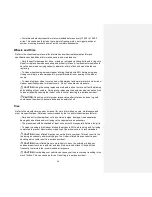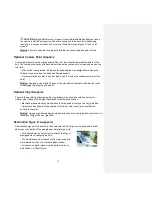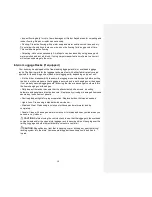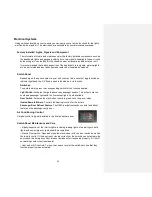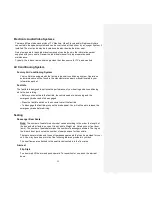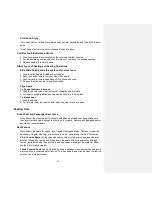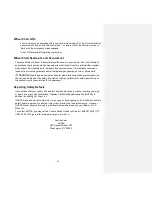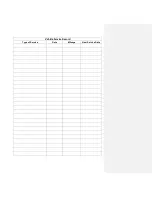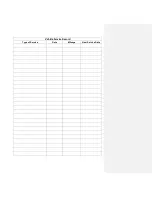
16
•
Complete underbody inspection is recommended between every 12,000 to 15,000
miles. This check would include the complete framing, welds, out-riggers, exhaust
system, mounting brackets as well as the complete suspension.
Wheels and Rims
Refer to the chassis owner manual for information on wheel replacement and torque
specifications and additional information on care and maintenance.
•
Daily Inspect for damaged or loose, missing or stripped mounting bolts and /or lug nuts.
Repair or replace items as necessary and properly torque. A replacement wheel should
have the same load carrying capacity, diameter, width, offset and mount as the one
replacing.
• To clean wheels using a wheel cleaner diluting the products 50% before using, and
rinsing completely is recommended to prevent discoloration or peeling of the wheel
covers.
• To clean aluminum wheel covers use a mild detergent and warm water
or an aluminum
cleaner specifically made for wheel covers. Do not use abrasive cleansers.
CAUTION
: Using the wrong replacement wheels, bolts or nuts can affect the braking
and handling of your vehicle. Using wrong replacement wheels can also cause the tires
to lose air possibly causing the loss of vehicle control resulting in a serious accident.
CAUTION
: Check lug nuts for proper torque value after rotations as loose lug nuts
could cause the wheel to become loose and possibly fall off.
Tires
Refer to the manufacturers owner
’s
manual for more information on care, maintenance and
other tire specifications. Rotate as recommended by the tire and/or chassis manufacturer.
• Daily inspect for the wear/tear, cu
ts, punctures, bulges, damage, tread separation,
damaged valve stems and/or missing valve caps replace as necessary.
• Tire pressure should be checked at least once a month or especially before a long trip.
• To clean tire using a tire cleaner diluting the products 50% before using,
and to rinsing
completely to prevent discoloration or peeling of the wheel covers, is recommended.
CAUTION
: Under inflated tires can cause the tire to overheat. This can result in the
tire losing air suddenly and/or catching on fire. Under inflated tires can result in poor
handling which could result in a serious accident.
CAUTION
: Over inflated tires are more likely to be cut, punctured or broken by
sudden impact (such as a pothole) and result in a serious accident. Check all tires
frequently to maintain the recommended air pressure.
CAUTION
: Overloading your vehicle can cause your tires to overheat resulting in too
much friction. This can cause an “air
-
out” resulting in a serious accident.















